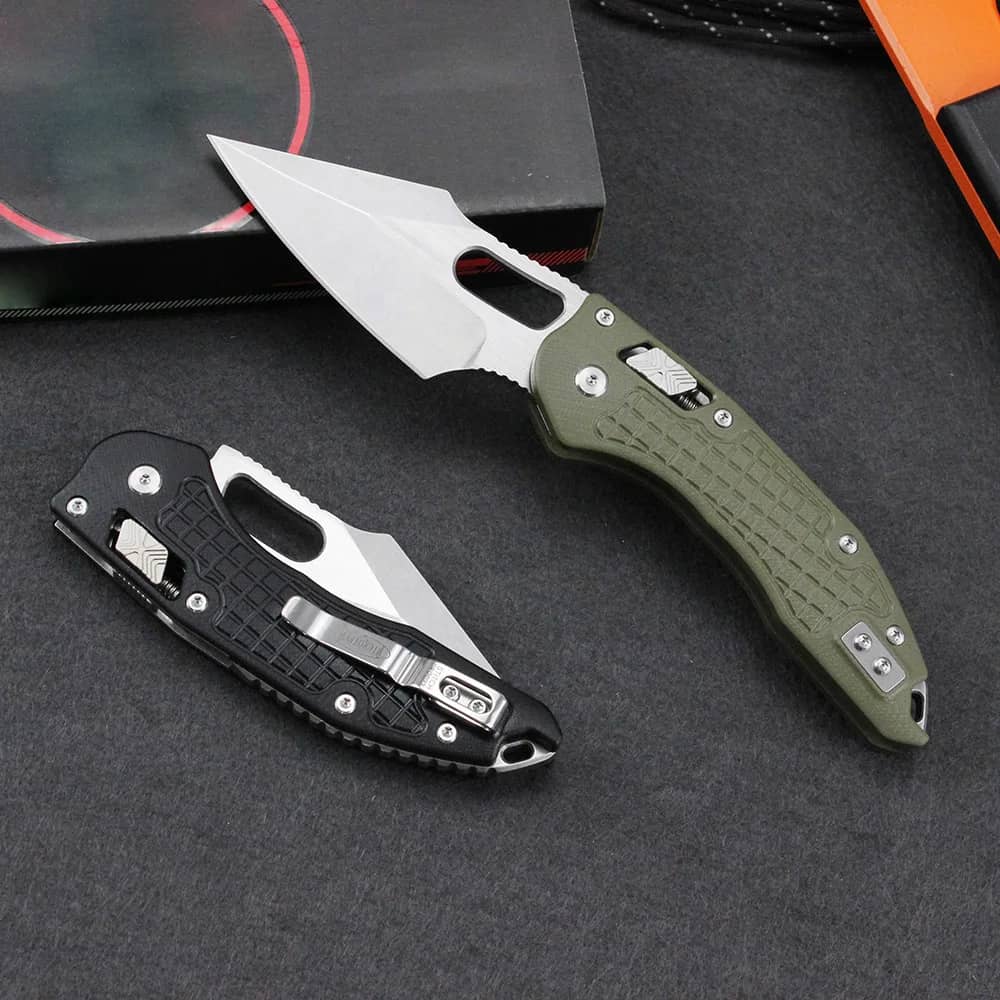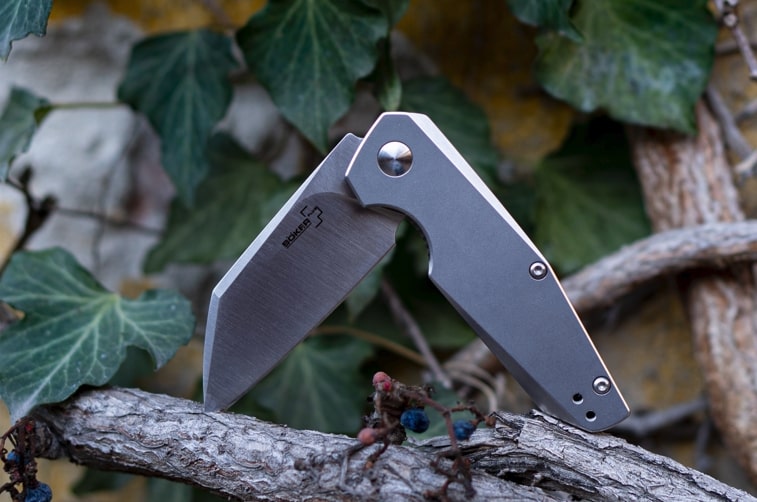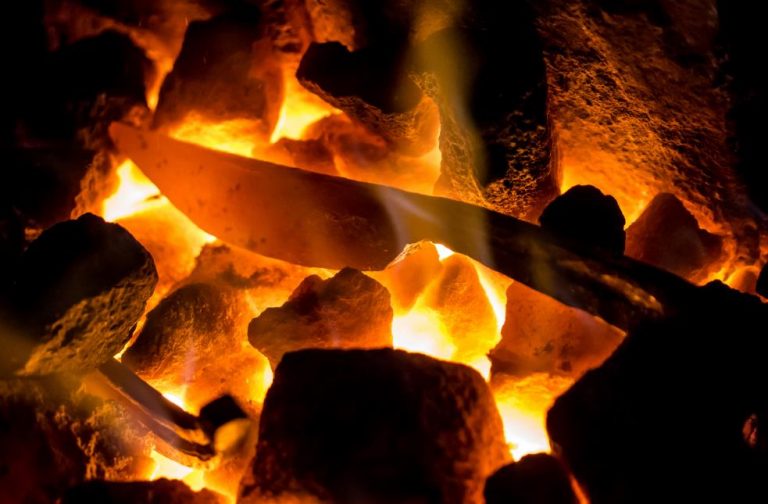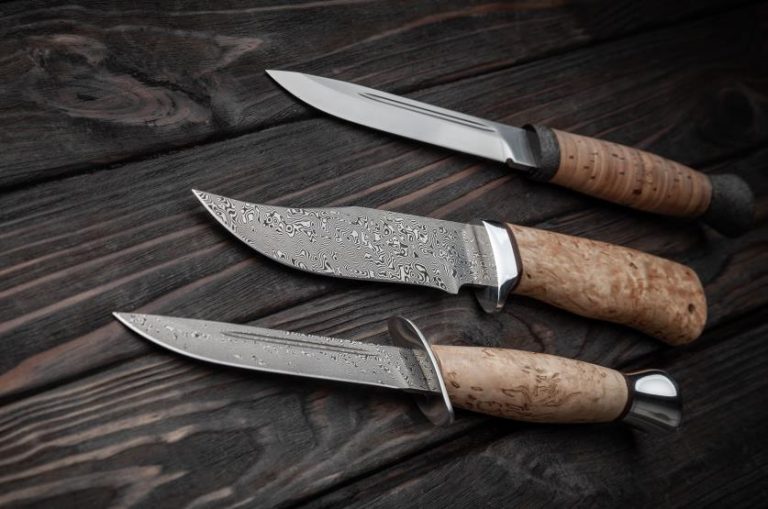If you’re searching for durable, lightweight knife handles that balance strength and practicality, Grivory is a material worth exploring. As a high-performance thermoplastic blend of nylon and glass fibers, Grivory offers exceptional strength, heat resistance, and longevity—making it a top choice for knives designed to withstand real-world use without the bulk of metal handles.
Trusted by leading knife brands, Grivory handles outperform wood and metal in corrosion resistance and durability, ensuring they stay functional and attractive for years. Outdoor enthusiasts, professionals, and everyday users rely on Grivory for tools that resist slipping and degradation in harsh conditions.
What is Grivory
Grivory is a high-performance thermoplastic developed by EMS-Grivory, a Swiss company renowned for advanced polymer innovations. It’s widely used in knife handles due to its unique combination of toughness and light weight, making it a favorite among manufacturers and users alike.
Classified as a polyamide (a strong, resilient plastic), Grivory is produced via injection molding, allowing for customizable shapes, textures, and colors. This versatility makes it ideal for creating unique, user-friendly knife handles that stand out in the market.
Buy Wholesale Knives and Start Scaling up with Us Today
Contact us and connect with a sales rep to get a free quote.
Key Properties of Grivory: Why It’s Ideal for Knife Handles
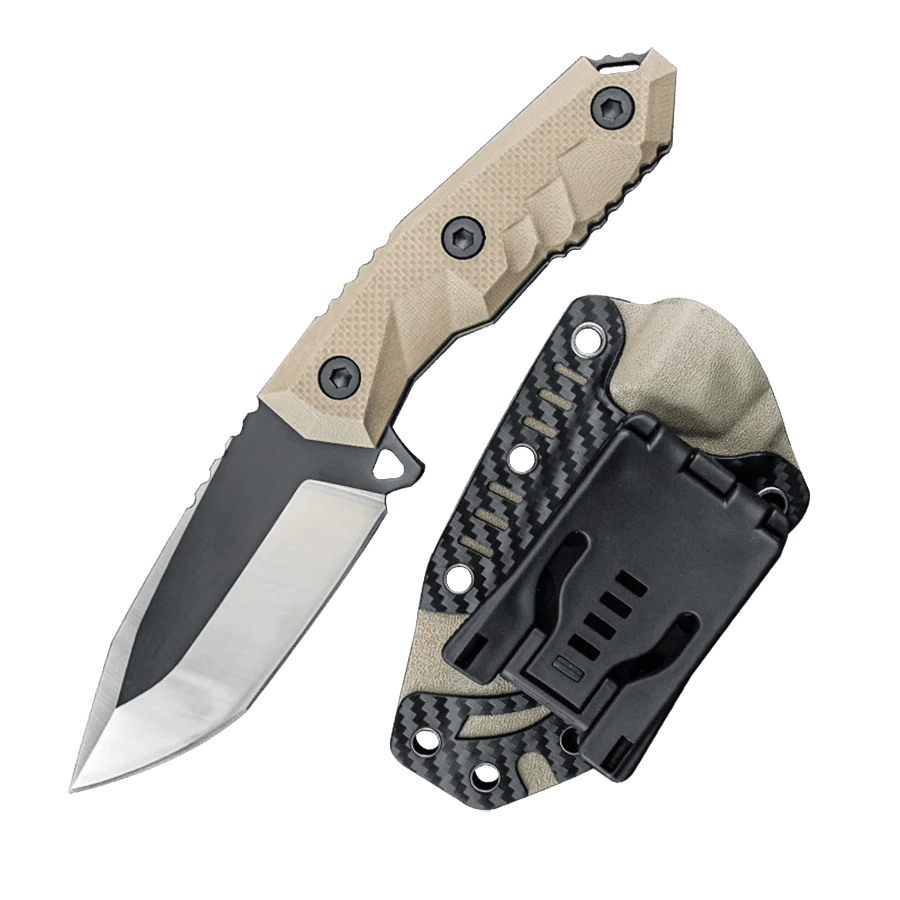
High Temperature Resistance
- Good performance at elevated temperatures.
- Excellent stiffness and strength at high operating temperatures (up to around 140°C for Grivory HT).
- Better heat distortion stability compared to many other polyamides.
Mechanical Properties
- High stiffness and strength.
- High dimensional stability and low warpage.
- Grivory LFT (long fiber reinforced) grades offer superior strength, stiffness, and crash resistance.
- Excellent notched impact strength and energy absorption, especially with long glass fiber reinforcement.
Chemical Resistance
- Good resistance to chemicals and hot water.
- Hydrolysis resistance in some grades (important for durability in moist environments).
Low Moisture Absorption
- Low water absorption.
- Mechanical and physical properties are only slightly affected by moisture.
- Maintains characteristics after moisture absorption, which is crucial for precision parts.
Buy Wholesale Knives and Start Scaling up with Us Today
Contact us and connect with a sales rep to get a free quote.
Pros and Cons of Grivory for Knife Handles
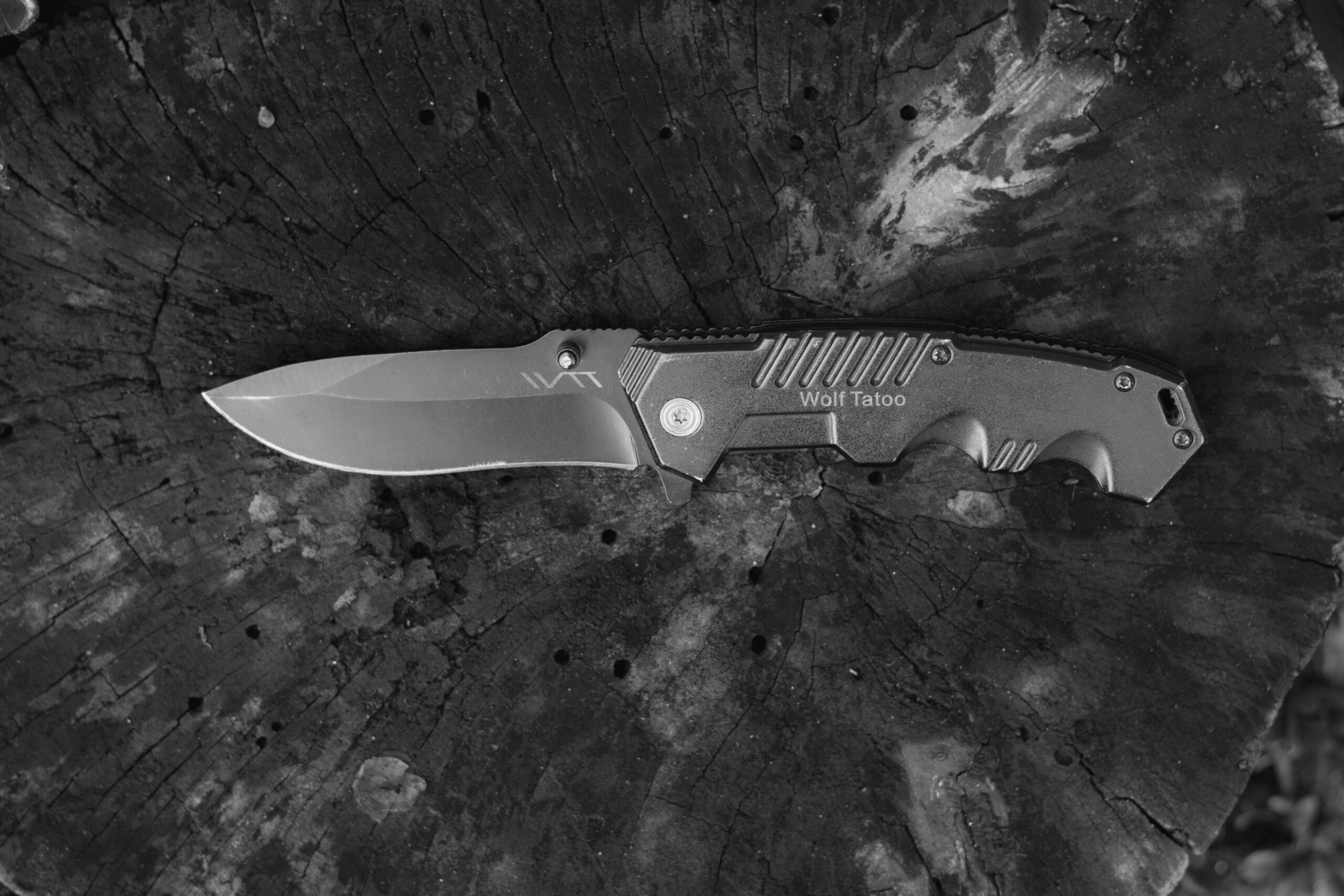
Pros of Grivory
- Lightweight: Keeps knives easy to carry, even large models, often under 5 ounces.
- Cost-effective: Offers better performance-to-cost ratio than premium plastics like Zytel, fitting budget and mid-range knives.
- Durable: Stiff enough for daily use, resisting impacts and wear.
- Customizable: Injection molding allows unique shapes, textures, and colors for brand differentiation.
Cons of Grivory
- Plastic-like feel: Some users prefer the premium texture of G10 or Micarta over Grivory’s smoother finish.
- Grip limitations: Less naturally slip-resistant than rough materials; requires texturing for wet or heavy-use scenarios.
- Aesthetic Limits: While customizable, it may lack the natural look of wood or the premium feel of CF Elite for some users.
Common Uses of Grivory in Knives
Grivory’s lightweight strength and affordability make it a staple in:
- Tactical Knives: Used in military or law enforcement tools for its impact resistance and all-weather grip.
- Outdoor Knives: Ideal for camping, hiking, or hunting knives, as it resists moisture and rough handling.
- EDC Knives: Lightweight and durable, perfect for daily use where reliability and comfort matter.
- Utility Knives: Found in industrial or workshop tools, thanks to its chemical resistance and impact absorption.
Buy Wholesale Knives and Start Scaling up with Us Today
Contact us and connect with a sales rep to get a free quote.
Grivory vs Other Materials: Which Is Best?
Choosing the right handle material depends on user needs, budget, and use case. Here’s how Grivory stacks up:
Grivory vs G10
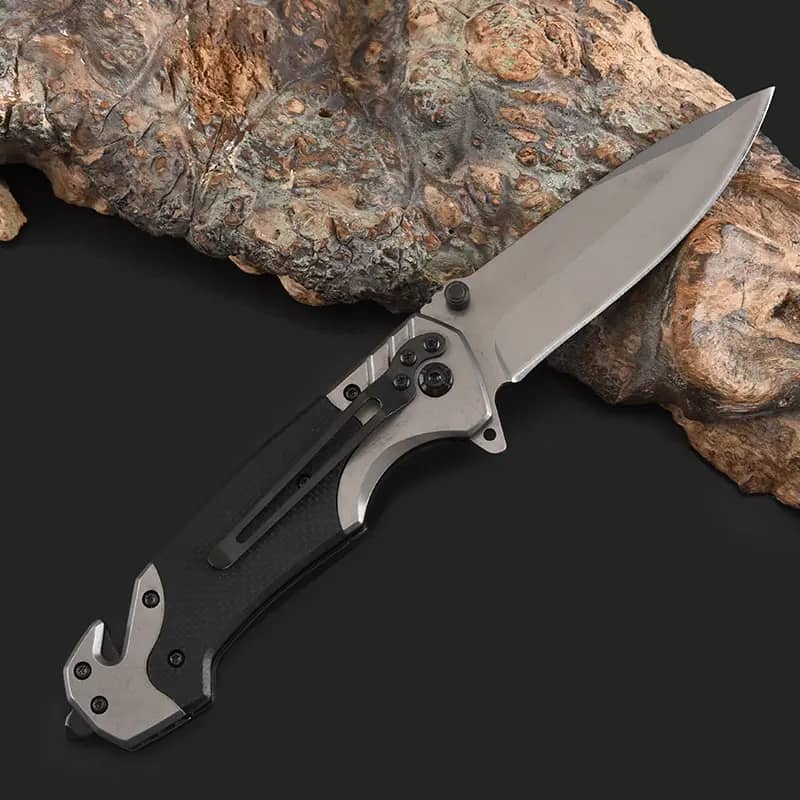
G10 is a high-performance composite made from layers of glass fiber cloth impregnated with epoxy resin, then compressed and cured under high heat. This manufacturing process creates an extremely rigid, moisture-resistant material with a naturally rough texture.
Grivory vs G10: Key Differences
| Feature | Grivory | G10 |
|---|---|---|
| Composition | Glass fiber-reinforced polyamide (nylon) | Glass fiber cloth + epoxy resin laminate |
| Weight | Lighter (≈1.7 g/cm³) | Slightly heavier (≈1.9 g/cm³) |
| Cost | Lower (affordable for budget/mid-range) | Higher (premium pricing) |
| Grip | Good with texturing; smooth untextured | Excellent (naturally rough surface) |
| Durability | High (resists impacts, low moisture absorption) | Very High (impervious to moisture, extreme rigidity) |
| Heat Resistance | Up to 120°C (248°F) | Up to 140°C (284°F) or higher |
Grivory vs FRN (Fiberglass Reinforced Nylon)
FRN (Fiberglass Reinforced Nylon) is a plastic composite made by mixing short glass fibers into nylon resin, then injection-molding the mixture into handles. It’s known for its balance of flexibility, durability, and low cost.
Grivory vs FRN: Key Differences
| Feature | Grivory | FRN (Fiberglass Reinforced Nylon) |
|---|---|---|
| Composition | Glass fiber-reinforced polyamide (partially aromatic nylon) | Short glass fibers + standard nylon resin |
| Weight | Light (≈1.7 g/cm³) | Similar (≈1.6–1.7 g/cm³) |
| Cost | Low to mid-range | Lower (most budget-friendly option) |
| Rigidity | Higher (firmer feel under pressure) | Lower (slightly more flexible) |
| Heat Resistance | Up to 140°C | Up to 100°C |
| Texture | Smooth base; customizable with texturing | Often has molded grip patterns |
| Durability | High (resists warping) | High (but may show wear faster in extreme use) |
Buy Wholesale Knives and Start Scaling up with Us Today
Contact us and connect with a sales rep to get a free quote.
Grivory vs CF Elite (Carbon Fiber Elite)
CF Elite (Carbon Fiber Elite) is a premium composite made by blending nylon resin with carbon fibers, creating a material that combines ultra-light weight with exceptional strength.
It’s lighter than most plastics and offers superior strength-to-weight ratio, though production costs are higher due to the expense of carbon fibers.
Grivory vs CF Elite: Key Differences
| Feature | Grivory | CF Elite (Carbon Fiber Elite) |
|---|---|---|
| Composition | Glass fiber-reinforced polyamide | Carbon fiber + nylon resin |
| Weight | Light (≈1.7 g/cm³) | Ultra-light (≈1.4–1.5 g/cm³) |
| Cost | Low to mid-range | High (premium pricing) |
| Rigidity | Good | Excellent (extremely stiff) |
| Strength | High (resists impacts) | Very High (superior tensile strength) |
Why Grivory Shines for Knife Handles
Grivory fills a unique niche in 刀柄 (handle) materials: it combines the lightweight flexibility of FRN, the durability of G10, and the chemical resistance of CF Elite—all at a more accessible price than carbon fiber. For users prioritizing reliability, comfort, and versatility, Grivory handles deliver consistent performance in nearly any scenario, from daily tasks to extreme outdoor adventures.
Whether for EDC, outdoor, or kitchen knives, Grivory delivers reliability without compromising on weight or cost. If you’re looking to leverage these advantages to expand your product line, our team is here to help bring your vision to life. We specialize in OEM and wholesale services for custom Grivory knife handles, offering end-to-end support from design to production.
Ready to elevate your knife line with Grivory’s benefits? Request a quote today to discuss your custom Grivory handle needs.
Frequently Asked Questions
How does Grivory differ from aluminum for knife handles?
Grivory is significantly lighter (density: ~1.7 g/cm³ vs. aluminum’s ~2.7 g/cm³), reducing knife weight for easier carrying. Unlike aluminum, it resists corrosion and chemicals, making it better for outdoor or wet environments. Grivory also offers better impact resistance (no dents from drops) and is easier to mold into complex shapes via injection molding.
Is Grivory as strong as carbon fiber for high-strength uses?
No—carbon fiber has higher tensile strength and is lighter. However, Grivory is more affordable and easier to manufacture, especially for complex shapes. It’s a cost-effective choice for most applications where “good enough” strength meets budget needs.
